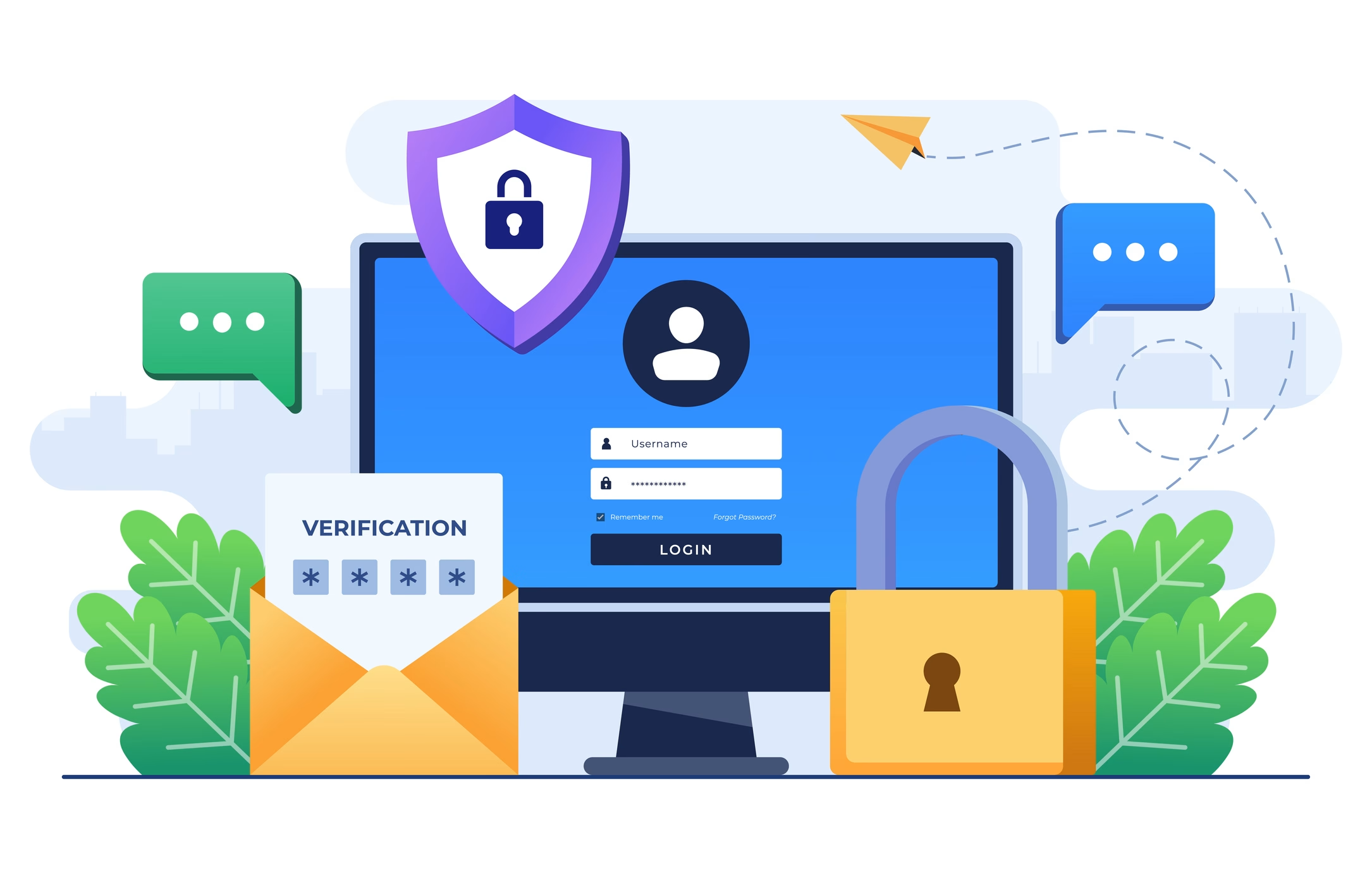It seems like few weeks go by anymore without news of another huge hack or data breach. In fact, you could argue that cyber security incidents seem less prevalent than ever for the simple reason that we have all gotten used to them. In other words, websites are compromised so frequently that it barely seems noteworthy anymore.
What gets lost in that thinking, however, is that the companies that are affected by hacking face massive challenges. In fact, a sizable percentage of businesses targeted by cyber criminals actually lose the ability to continue operating. In other words, the losses from an attack – which include IT expenses, financial theft, and reputational damage – could cause you to close your doors.

You might be thinking to yourself that these risks don’t apply to you. You could be living with the false sense that you’re safe from cyber criminals because your business is too small to target. We’ve found over the years that this myth is incredibly pervasive. It’s also dangerous.
The fact of the matter is that small businesses need to worry about web security the most. Not only are they the most vulnerable to hackers, but they are least equipped to deal with the consequences.
A Fortune 500 firm will have a massive IT department, cash reserves, insurance contracts, and PR agencies to back them up following a high-profile incident. Conversely, the average business owner has shallow pockets and their own credibility. Either of those can be taken away if a criminal gets access to information they shouldn’t.
In this article we want to explain why you absolutely should worry about cyber crime. We’ll also share the easy steps you can use to avoid being a victim.
Cyber Attacks on Small Businesses Are Increasing
It’s hard to find good statistics on cyber crime for the simple reason that many business owners won’t report an incident, even if their company has been severely affected. In many cases they already lost time, money, and business. They worry that publicizing the fact that they didn’t take the proper precautions will only make things worse.
With that in mind, we won’t try to give you any hard numbers to make our point. We’ve seen a few, but they are probably inaccurate and outdated. What we can tell you is that nearly every business owner or executive we work with knows someone who has been affected by hacking and cyber crime. We suspect the problem will get worse in the coming years.
We wish we could make a different prediction, but all the trends are pointing in the wrong direction. For one thing, we’re doing more of our business online rather than less. That means more apps, more complexity, and more opportunities for the “open doors” we mentioned earlier.
At the same time, criminals are paying more attention to cyber crime than ever before. The people who used to smash in doors or crawl in through windows have begun to realize that it’s easier to work from a laptop. And of course, there are large and complex overseas criminal organizations causing trouble, as well.
Our point isn’t to share doom and gloom. It’s to (hopefully) convince you to take data security seriously. There are lots of bad things that can happen if you’re an easy target. And, there are plenty of easy ways to convince hackers to move on from your website and look elsewhere.
Hackers Look for Easy Targets
Many business owners think they won’t be targeted by hackers because their websites and businesses are too small. But that’s exactly why they are so appealing to thieves.
Breaking into a major corporation’s web presence requires planning, teams, and sophisticated software. But a dishonest person can buy malicious software on the dark web for the equivalent of a few dollars. These bits of code aren’t nearly as complicated as the ones used in high-profile attacks, but they work off of known security exploits and loopholes. In other words, they can help thieves find open doors.
Can you guess where the open doors are most likely be found? That’s right, on small business websites that aren’t properly protected or updated. Many owners and entrepreneurs don’t take the time to have their websites tested and audited or update their content management systems. That leaves them with issues that are easy for criminals to take advantage of.
While a hacker might not get millions of dollars from breaking into your website, or even dozens of credit card numbers, they could get sensitive information that is of great value to them. For example, they might decide to contact every email address you’ve ever sent a message to. They can install software that operates your webcam. They might steal banking passwords. Or, they could redirect visitors to your website to another page.
These are only a few examples, but it probably wouldn’t take long for you to figure out how terrifying the effects could be if you are on the wrong end of such an intrusion. Such a situation might have heavy implications for your life, not to mention the future of your business.
It’s worth pointing out, once again, that these sorts of issues are actually more common for small businesses than they are larger ones. That isn’t because small business owners have more money, but because they take fewer precautions. If you are simply willing to take data security a bit more seriously than your competitors, you can probably avoid any major problems.
The 3 Easiest Ways to Protect Your Website
Protecting your website – which also means protecting your business, as well as its customers and employees – really comes down to three different steps or layers:
- The first is just good and intentional website design. Some of the vulnerabilities I’ve already described are essentially “baked in” to a website because the developer didn’t take time to research apps or correctly configure pages. It goes without saying that you should only work with reputable creative teams and ensure that they are taking data security seriously.
- The second layer of protection is simple common sense. If you want to keep hackers away, then don’t look through questionable websites on work computers and networks. Set complex passwords and change them frequently. Train your staff to follow good data security procedures. Avoid downloading software that you don’t recognize, and (as already covered) invest in a reliable web hosting package.
- And finally, the third layer of safety comes down to software and precautions that are introduced after the fact. These could be antivirus suites, firewalls, secure data transfers, and other tools that will likely be suggested by your web design and development team. You certainly won’t have to find or evaluate these on your own. However, you should be open to following their advice as your website goes live.
You might note that none of these steps require you to become a computer programmer or develop some other level of technical expertise. They are all just about good planning and intentional action.
As time goes on, you may find that you need to go farther than these steps. Usually, that’s because you had so much success with your website that it has become popular with customers. You are getting more visitors and revenue than ever before and have a need for faster service, more robust security, etc. Those are good problems to have.
For the moment, though, just know that data security for your business website doesn’t have to be complicated. However, it isn’t a topic you can afford to ignore completely.
Good Online Security Isn’t a Huge Expense
Experience has taught us that most business owners would like to have better protection for their websites and data but think it’s going to be difficult or expensive. However, that’s really not the case.
A good web design team will build the first layer of protection we described into the cost of coding a new website. So, if you have a trusted designer on your side, then you won’t have to worry about the basics.
The second layer of protection doesn’t really carry any financial cost at all. It’s just a matter of prioritizing data security within your business. For example, it doesn’t cost anything, or even take very long, to generate secure passwords and write them down in a safe place. However, you can’t benefit unless you actually take a few moments and turn that advice into a reality.
Finally, the sorts of ongoing analytical tools we’ve described are less expensive than ever. For just a few dollars per month you can get tools that scan emails, look for suspicious traffic patterns in your website, and even use AI to filter out threats from criminals.
While it’s true that each of these tools or subscriptions increases the cost of launching and operating your website just a little bit, the reality is they can save you tons of money in the long run. If you doubt that, just ask one of the entrepreneurs who was forced out of business after a data breach this year.






